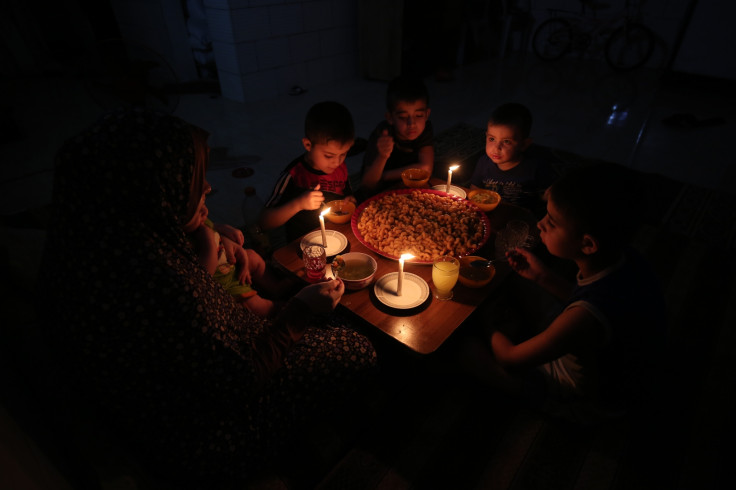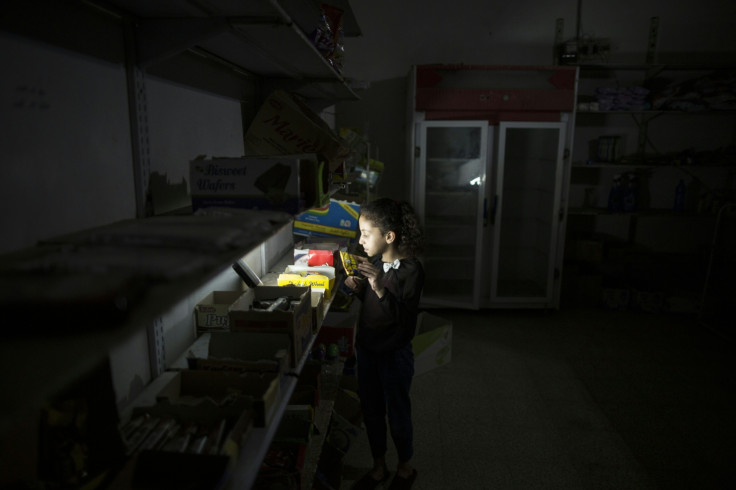Hamas is behind Gaza's suffering, not Israel
No work, no water, and now no light: The oppression of Gazan people is the bloodline of Hamas.

Gaza's sole power plant shut down on last week for lack of funds, leaving the nearly two million residents of the coastal enclave with only three hours of electricity a day.
The Palestinian Authority in the West Bank and Hamas in Gaza blame each other for the energy shortage. After multiple failed reconciliation attempts between the two parties, the Palestinian Authority is now flexing its muscles in an aggressive push to reassert some control over Gaza, which Hamas seized a decade ago in a violent takeover.
The standoff has left Israel in a tough spot, having to choose between giving tactical support to Hamas by keeping the fuel running or risking a humanitarian crisis that could trigger an upsurge in violence. Last time Palestinian reconciliation collapsed, Hamas members kidnapped and murdered three Israeli teenagers in the West Bank in June 2014.
All of this is a tragedy. But it is a tragedy deliberately manufactured by Hamas that easily could have been avoided. Hamas is doing again what it has done a hundred times before: sacrificing the well-being of Gaza's civilian population on the altar of cynical political ambitions.
Hamas could, if it wanted to, pay for the lack of electricity and ease the suffering immediately. According to data from the Hamas Finance Ministry, the group collects at least $15m (£11m) a month in taxation. But instead of paying for education, medical services and electricity, Hamas invests millions of dollars a year in its military infrastructure and preparations for war, including smuggling tunnels and rockets.
Why? Because it is a terrorist organisation and terrorists, as their name says, live off terrorising people. Despite its claims to the contrary, the last thing Hamas cares about is the welfare of the Palestinians in the impoverished seaside territory.
The bitterness and hardship of Gaza's residents is the bloodline of Hamas. It is the fertile ground on which its extremist Islamist ideology flourishes and from which it recruits its fighters. The same rationale is guiding Hamas in confiscating food aid and blankets and robbing fuel stockpiles from hospitals: the more misery the better.
The same rockets, bombs and rifles that are killing Israeli civilians are being used by Hamas to terrorise and oppress its own population
No wonder the Gazan population is growing increasingly agitated as conditions worsen. Gaza's economy lies in ruins. In its decade-long rule, Hamas has offered its people preciously little but destruction and death.
The United Nations Relief and Works Agency for Palestinian Refugees paints a grim picture. Gaza's unemployment rate is at 43.9 per cent - the highest in the world. Over the last 20 years, real per capita income has fallen by 31 per cent. Over two-thirds of the population receive social assistance and nearly 40 percent of them fall below the poverty line. The water is dangerously polluted. And now the lights have gone out.

Since Israel pulled out of Gaza in 2004 and Hamas took control of the Strip, it has become increasingly evident that the only way to achieve meaningful and enduring peace is to disarm the group and dismantle its military infrastructure.
The same rockets, bombs and rifles that are killing Israeli civilians are being used by Hamas to terrorise and oppress its own population. The residents of Gaza have been abused by the group as human shields and Hamas has exploited civilian infrastructure as deceptive sanctuaries to provoke an Israeli response.
And all the while the people of Gaza have been humiliated, threatened and had to fear for their lives and the lives of their children as a price to pay for the cynical political agenda of Hamas, its leadership has ruled with an iron fist from the comfort of lavish hotels in Qatar where they reside in exile.
Hamas warned of renewed violence if Israel acquiesces to the demands of the Palestinian Authority and reduces its electricity supply for the Gaza Strip. If the current crisis spirals out of control, there is only one party to blame: Hamas.
Julie Lenarz is the Executive Director of the Human Security Centre and a Senior Fellow at The Israel Project. She tweets at @MsJulieLenarz
© Copyright IBTimes 2024. All rights reserved.






